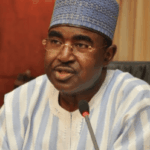Aminu Ibrahim Shehu, consultant psychiatrist at the Aminu Kano Teaching Hospital (AKTH), has recommended a review of the curriculum of journalism training institutions in Nigeria to include trauma journalism.
He also cautioned Nigerian journalists to deliberately take mental-health precautions as they continue to work under intense deadline pressures, fast-paced news cycles and emotionally demanding assignments.
Shehu made the suggestions while delivering a paper on Saturday at the Kano Correspondents' Chapel 2025 retreat held in Kaduna in collaboration with the Kano State Government.
He said journalists face unique psychosocial risks due to the nature of their work, emphasizing that uncontrolled stress can lead to burnout, anxiety disorders, depression and other mental challenges.
According to him, increasing competition within newsrooms, pressure to break stories, toxic online environment and constant exposure to traumatic events have made journalists one of the most vulnerable professional groups.
Also read: World press freedom: Journalism faces new threats from AI, censorship
Shehu said, “Deadline pressure has become a significant mental-health concern in Nigerian newsrooms. Many journalists work long hours under tight deadlines and with limited control over the pace of events. This constant pressure can overpower the brain, impair judgment and trigger psychiatric symptoms.”
He advised journalists to pay close attention to early warning signs such as difficulty concentrating, irritability, emotional exhaustion, sleep disturbance and feelings of panic or helplessness, and said these symptoms should not be ignored.
Shehu outlined several precautions to help journalists cope better, including breaking tasks into manageable segments, planning in advance to minimize last-minute rush, taking short breaks during production and reducing overstimulation caused by social media or excessive caffeine.
They also urged reporters and editors to seek help from colleagues, supervisors or mental-health professionals whenever workload becomes overwhelming.
He said, “It is not a weakness for journalists to admit that they are under psychological stress. Early intervention protects mental function, prevents fatigue and ultimately improves the quality of journalism.”
The psychiatrist stressed the need for Nigerian media organizations to establish mental-health support systems for their staff, such as trauma debriefing, workload rotation, and access to counseling services, especially for journalists exposed to crime, conflict, disasters, and other high-stress situations.
He called for a change in newsroom culture, emphasizing that healthy journalists produce more accurate, ethical and effective reporting.
Shehu said, “Newsrooms must understand that mental well-being is integral to professionalism. When journalists come under pressure, society suffers because the quality of information suffers.”
Shehu encouraged journalists who experience persistent anxiety, depression, panic attacks or trauma symptoms to seek professional care without stigma, warning that untreated mental-health conditions can turn into more serious disorders.
He urged media practitioners to prioritize rest, hydration, healthy eating and recovery after deadlines, calling these simple but powerful tools for maintaining long-term mental resilience.
The call comes amid growing concern about stress-related health challenges in Nigeria's media industry, where many journalists struggle with multiple beats, irregular pay, security risks and an increasingly complex digital landscape.











